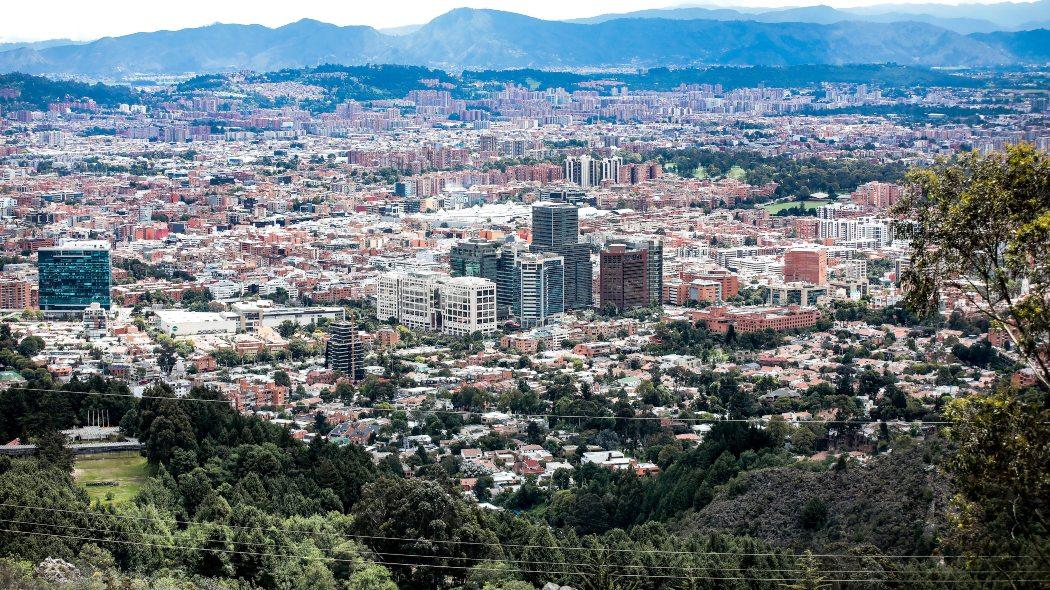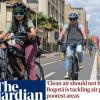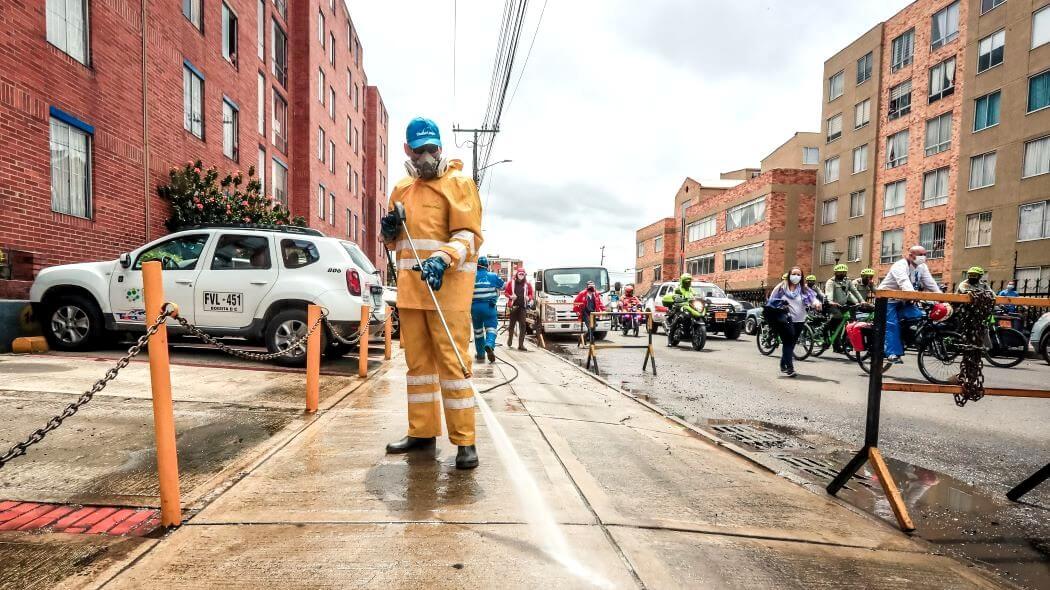Coronavirus is a contemporary tragedy that revealed the fragility and interdependence of human societies in a globalized era. While the pandemic had unexpected effects in some parts of the world, the crisis turned into an opportunity to face social inequality in the capital of Colombia. Bogotá has created a system of welfare and care never seen before in Latin America.
Transforming challenges into opportunities
Since mayor López’s inauguration, her flagship policy was to transform Bogota into a ‘city of care’ based on the development of a new social and environmental contract. In order to develop this vision, the entire 4 years of the administration were required, but Covid-19 changed all timelines. Now, Bogotá has to respond to the social and economic chaos the pandemic has generated, while accomplishing its main goals.
See also: Communicating and raising awareness during lockdown: a priority for Bogotá
In this scenario, Bogotá´s comeback has been alluring. The mayor´s office decided to use the crisis as a way to accelerate social transformations already envisioned. Bogota’s case is worth being studied and could be a reference for other countries in the region and the world.
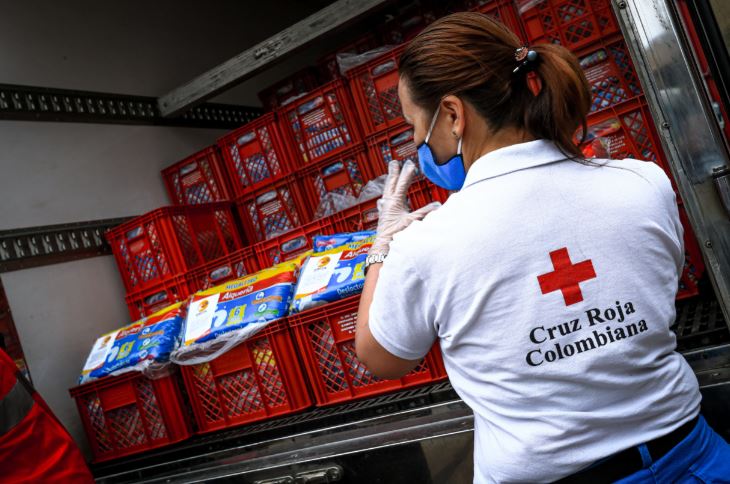
For example, the lockdown enabled the creation of a guaranteed minimum income. This has been possible by transforming the system of donations and subsidies to fight Covid-19 into a permanent program. The platform Bogotá Solidaria en Casa (Spanish for solidarity at home) has benefited more than 2 million citizens in extreme poverty, high vulnerability and victims of the armed conflict. The mayor´s plan is to use the infrastructure created to gather donations in order to build up a welfare programthat will turn Bogotá into the first capital city in the Americas to adopt such a system.
Additionally, economic reliefs were granted to households all over the city by postponing tax payments deadlines. At the same time, business lines of credits were enabled to aid entrepreneurs facing economic downturn and guarantees were given to certain business in order to operate according to strict sanitary measures.
See also: A social and environmental contract for the post COVID-19 era
Another successful experience has been Bogotá´s management of the city-wide lockdown. Ensuring the public had free access to the city’s epidemiological model, the mayor’s office gained support over the opposing side calling for restrictions to be relaxed in order to protect the economy. Transparency in how authorities were making decisions created awareness in the national media and ensured the public’s support toward self-isolation and social distancing. Latest polls show 80% of the population supported the lockdown measures.
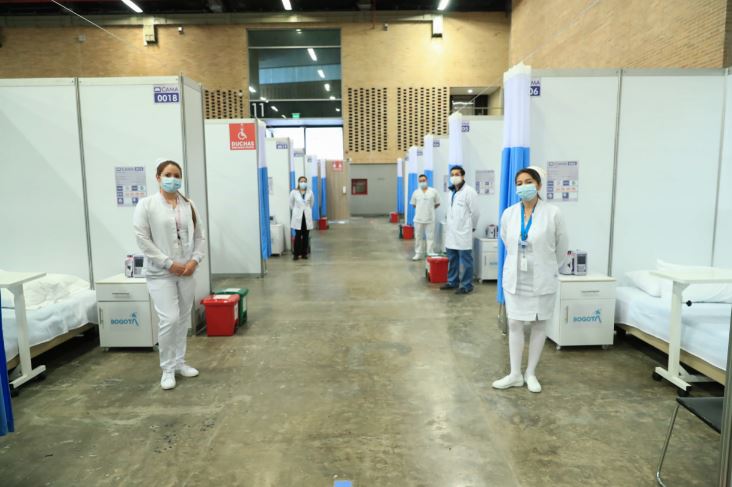
Furthermore, López’s administration decision-making style is based on scientific evidence and taking into account perceptions and behaviors among citizens. That is why the government uses Culture of Citizenship, a way to identify behaviors and popular beliefs that need to be transformed in order to face the Coronavirus. In this way, outstanding results have been obtained in promoting the idea that collective responsibility between government and citizens is required. The mayor has become the protagonist of a series of videos explaining core issues about the pandemic. Using interactive whiteboards, Lopez has taught people how to make homemade face masks and reminded the public to follow cleaning habits that avoid contagion. Polls indicate 81% of respondents constantly wash their hands and 75% have confirmed using face masks while outside the home.
Moreover, Bogotá innovated in protection mechanisms against the rise of domestic abuse during lockdown. The ‘Purple support line’ was set to operate 24/7 and local hotlines where implemented to provide legal advice to victims. In addition, the ‘Safe spaces’ program was built with the collaboration of private enterprises. This allowed women to attend local supermarkets and pharmacies to receive assistance in case of abuse. With this strategy, the government tried to reach remote areas of the city where state presence is weaker. This initiative is the first of its kind in the region.
See also: Redifining Multilateralism: The Bogotá Experience
Children's rights were also protected during the city-wide lockdown. For instance, strategies were applied in order to support distance learning for public school students. In this sense, digital platforms were created to allow free access to books, audio visual resources and mentoring.
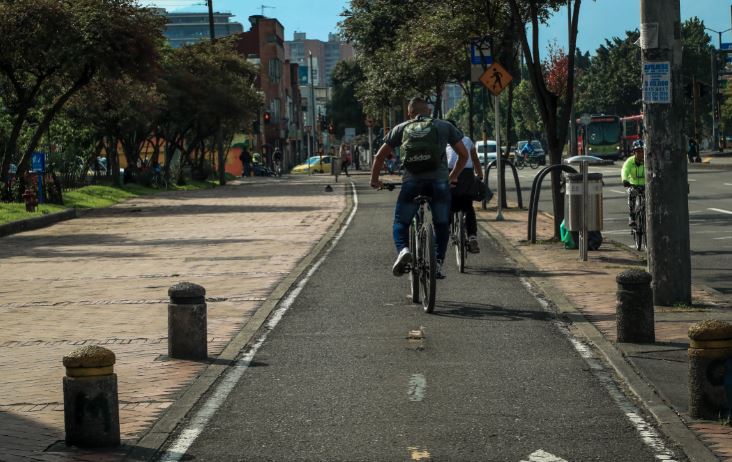
Also, the city has come up with urban cycling as a way to fight COVID-19. Due to the 88% reduction of its transportation network in order to avoid mass contagion, Bogotá began installing a 35km cycling route to ensure safety and mobility. The project hopes to expand its capacity up to 80 km of a permanent cycling network, which will be essential once the city lifts its lockdown. The administration’s plan is maintaining low demand in the TransMilenio bus system by promoting cycling, and by turning Bogota into a 24-hour city to evenly distribute demand. This urban cycling project has been so attractive that it has been replicated in Germany.
See also: How Do Bogotá's Special Care Zones Work?
In other words, the mayor´s office decisions were not only popular but according to epidemiological data have been very effective. The local health system remains below 70% occupation, and Bogotá reports one of the lowest Covid-19 fatalities per million inhabitants (56) in South America.
In order to preserve these achievements, the city implemented Special Care Zones as a way to target lockdown in areas in which there is a high risk of transmission. This zones are defined using georeferencing and Health Services databases to determine the number of contagions per neighbourhood, together with contact tracing. After this, the community gets massive testing, health programs and social aids.
To sum up, all determinations during the pandemic have been accompanied by a diverse cultural agenda and the promotion of physical activity in order to preserve mental health during this times of uncertainty.
Click hereto access additional information of legal measures adopted in the context of Covid-19 pandemic.
